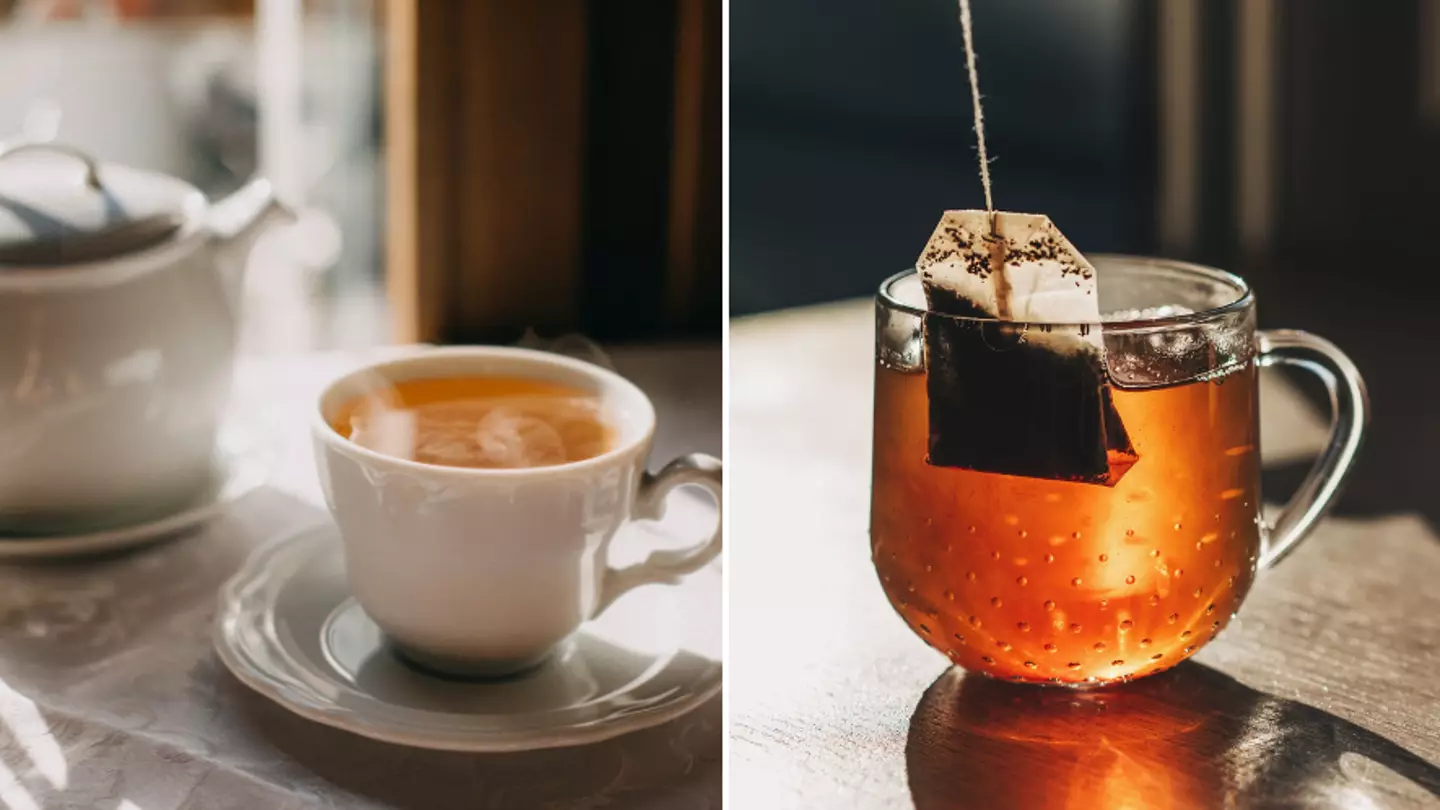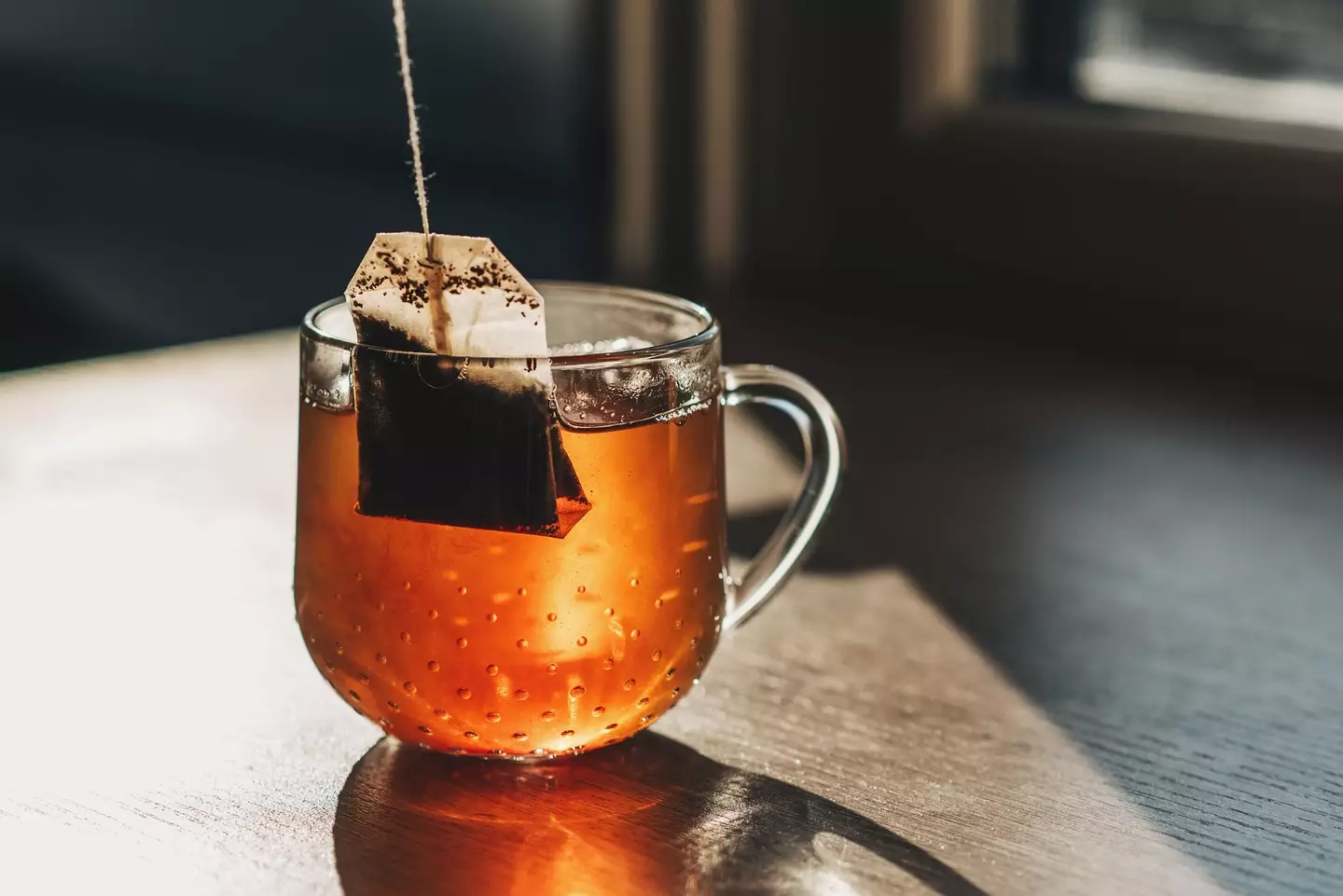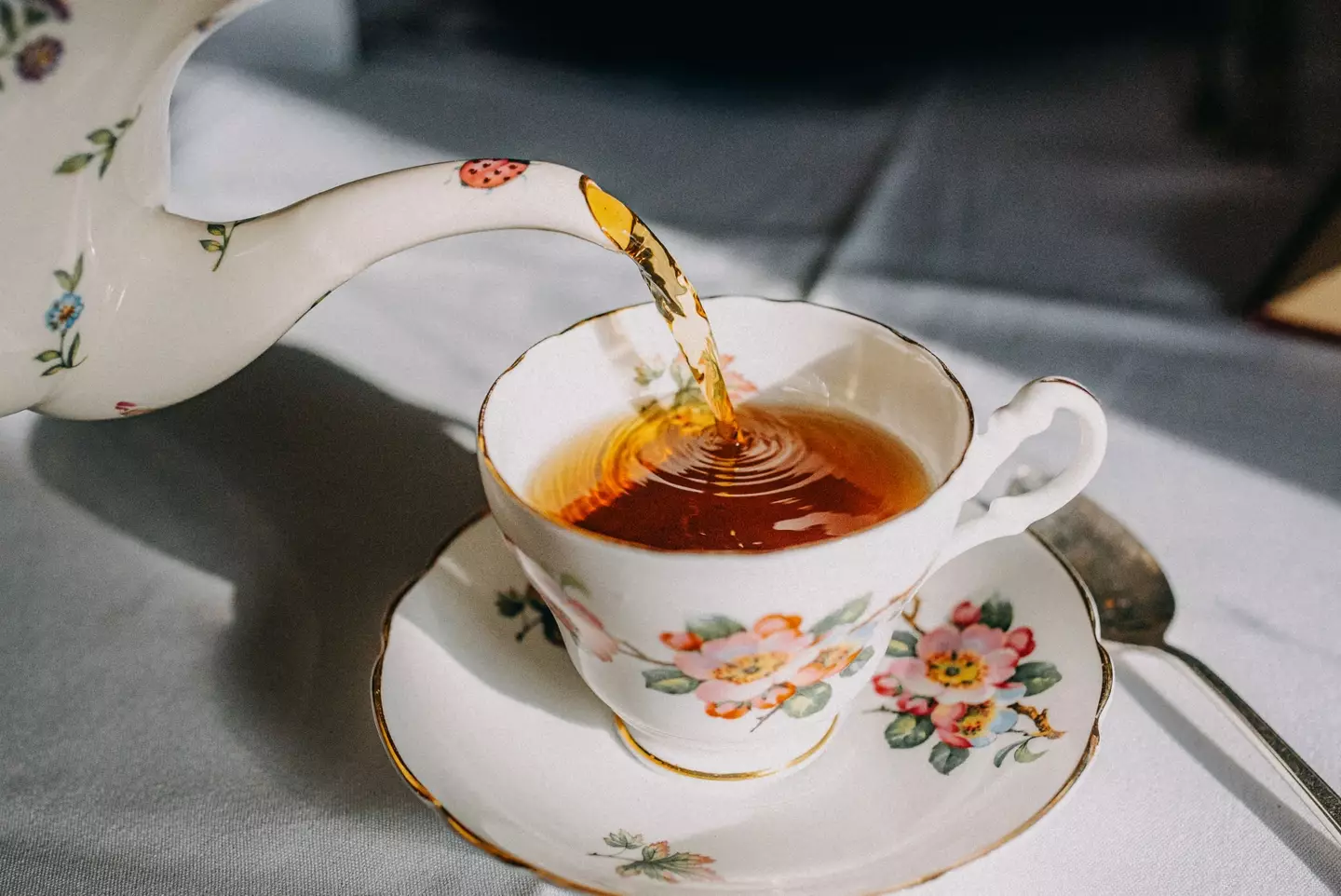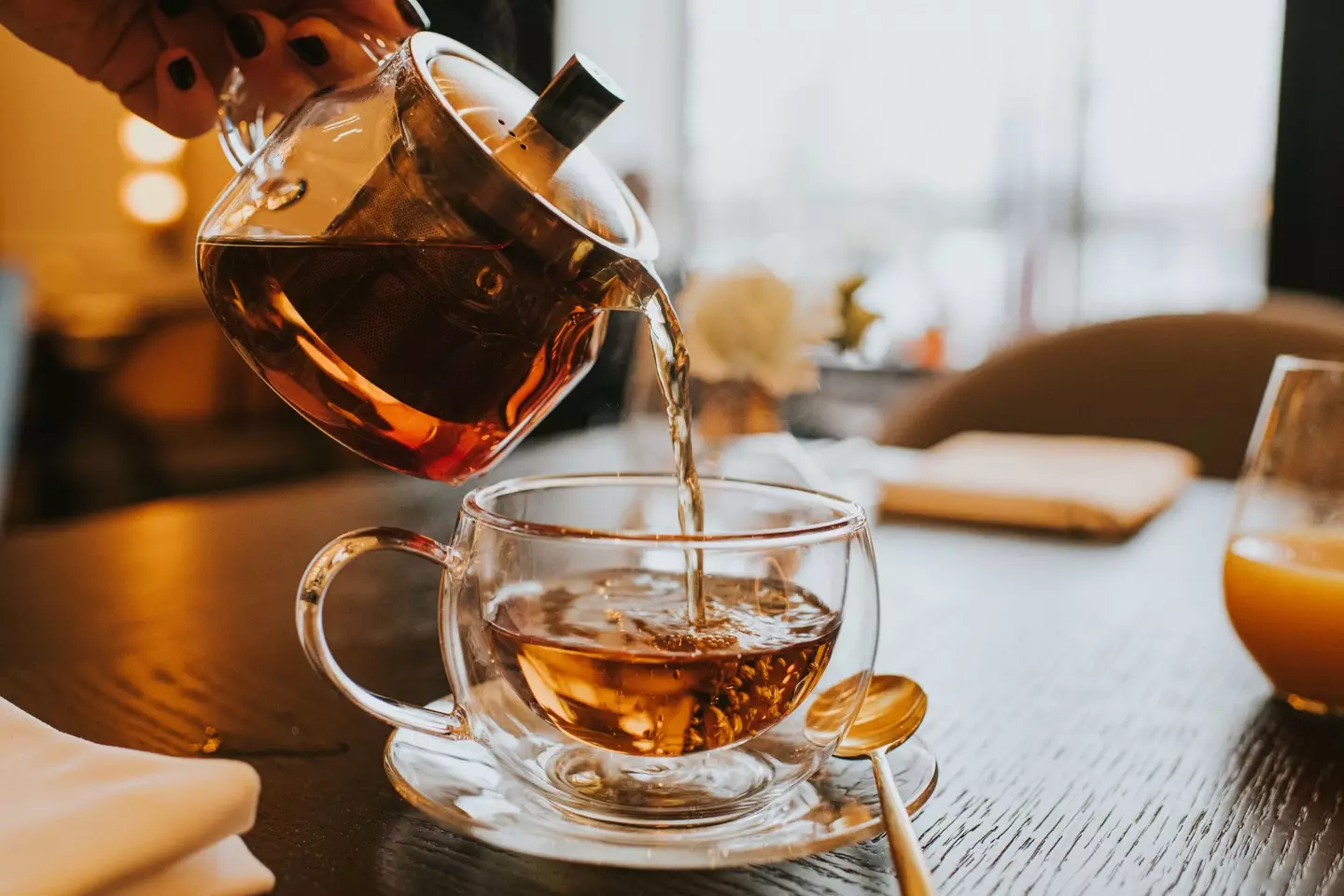
Whether you're an avid tea drinker or just trying to cut down on the amount of coffee you get through a day, many people perceive tea to be a healthier option.
Much has been said of the health benefits of tea, especially when you look at herbal, fruit and green teas too.
However, researchers have issued an urgent warning that your brew might not be as safe as you think.

Advert
Researchers from the Universitat Autònoma de Barcelona have found a potential danger lurking in the humble teabag.
Following many tests, scientists have found that some teabags are full of microplastics.
When they are steeped in boiling water, the microplastics are released into the water we drink.
"The potential health implications of environmental micro/nanoplastics (MNPLs) are increasingly concerning," they wrote.
"Beyond environmental exposure, other sources such as food packaging, including herbal teabags, may also be significant."
The study examined three popular types of teabag which you can buy online or in a supermarket.
They then tried brewing them in a cup in the "standard" way to see how many microplastics were released.
The study was published in the journal Chemosphere.

It was reported that most of the microplastics which make it into your system are absorbed and removed by mucus-producing intestinal cells.
However, some of the plastics managed to enter the cell nucleus, according to MailOnline.
The first teabag was a nylon one ordered from Amazon.
The next one was made of a polypropylene teabag ordered from AliExpress.
The third tea bag came from a supermarket.
Scientists then steeped 300 of each type of teabag in 600mls of 95°C water.
It was reported that 'huge' amounts of microplastics were released.
So which was the worst?

The polypropylene teabags released around 1.2billion particles per millilitre, with an average size of 136.7 nanometres.
The nylon teabags released 8.18million particles per millilitre, with an average size of 13.8.4 nanometres.
The scientists acknowledged further research is needed.
"It is critical to develop standardised test methods to assess micro/nanoplastics (MNPLs) contamination released from plastic food contact materials and to formulate regulatory policies to effectively mitigate and minimise this contamination," they added.
"As the use of plastic in food packaging continues to increase, it is vital to address MNPLs contamination to ensure food safety and protect public health.
"Overall, our findings contribute to a growing body of evidence on the pervasive nature of plastic pollution and its potential implications for human health."
Scientists have previously found that microplastics can cause respiratory issues.
Loose leaf tea with a metal strainer is found to have far lower amounts of microplastics.
Topics: Food and Drink, Science, Health